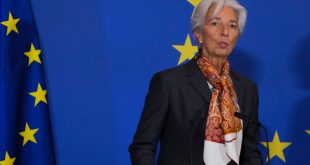The UK economy shrank for the second month in a row in October, marking the first back-to-back declines in economic output since the early days of the COVID-19 pandemic. Gross domestic product (GDP) fell by 0.1% in October, mirroring the contraction seen in September, according to data from the Office for National Statistics (ONS).
This consecutive decline highlights ongoing challenges for Britain’s economy, which has struggled to regain momentum following the pandemic. Economists had anticipated modest growth of 0.1% for October, but the reality fell short of expectations, adding to a growing list of underwhelming economic indicators, including business surveys and retail sales data.
Key Sectors Show Mixed Performance
The services sector, which forms the backbone of the UK economy, stagnated in October. Meanwhile, manufacturing and construction output experienced declines, underscoring the uneven nature of the economic slowdown.
Separate ONS data also revealed a decline in the trade of goods, with both imports and exports falling during the month. However, exports to the European Union outpaced those to the rest of the world for the first time in nearly a year, offering a rare silver lining in an otherwise bleak trade landscape.
Impact of Reeves’ Budget and Investor Sentiment
October’s economic performance came just before the unveiling of Chancellor Rachel Reeves’ first budget, which introduced significant tax increases on businesses while boosting investment and public service spending. Although the direct effects of the budget will be reflected in GDP data from November onward, the ONS reported mixed anecdotal evidence of its immediate impact. Some firms noted delayed customer activity ahead of the announcement, while others brought forward their operations.
Following the release of the GDP data, the pound weakened slightly against the US dollar, reflecting heightened investor uncertainty. Market expectations also suggest that the Bank of England (BoE) may implement three quarter-point rate cuts by the end of next year. However, Paul Dales, chief UK economist at Capital Economics, stated that the central bank is unlikely to adjust rates during its upcoming meeting.
Outlook for Growth
The BoE recently downgraded its 2024 growth forecast from 1.25% to 1%, signaling a cautious outlook for the near term. However, the bank predicts a stronger performance in 2025, with growth expected to reach 1.5%, buoyed by the expansionary measures introduced in Reeves’ budget.
The UK has faced slow economic growth since the pandemic, with energy price surges following Russia’s invasion of Ukraine adding further strain. Among the largest advanced economies, only Germany has recorded a noticeably worse performance during this period.
As Britain navigates these economic headwinds, the combination of fiscal adjustments and monetary policy decisions will be pivotal in determining the trajectory of recovery.
 Noor Trends News, Technical Analysis, Educational Tools and Recommendations
Noor Trends News, Technical Analysis, Educational Tools and Recommendations





